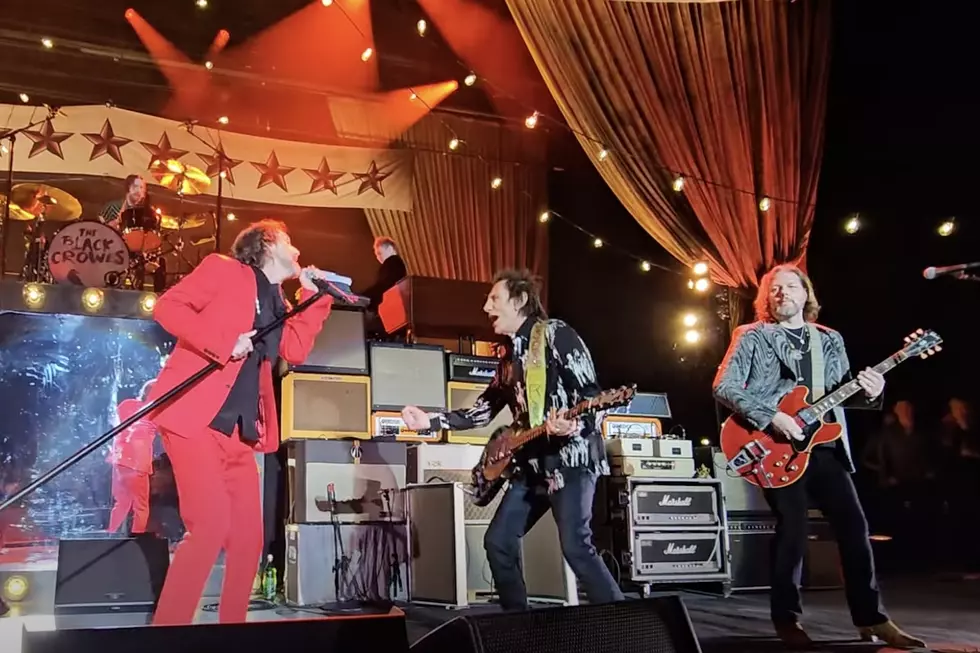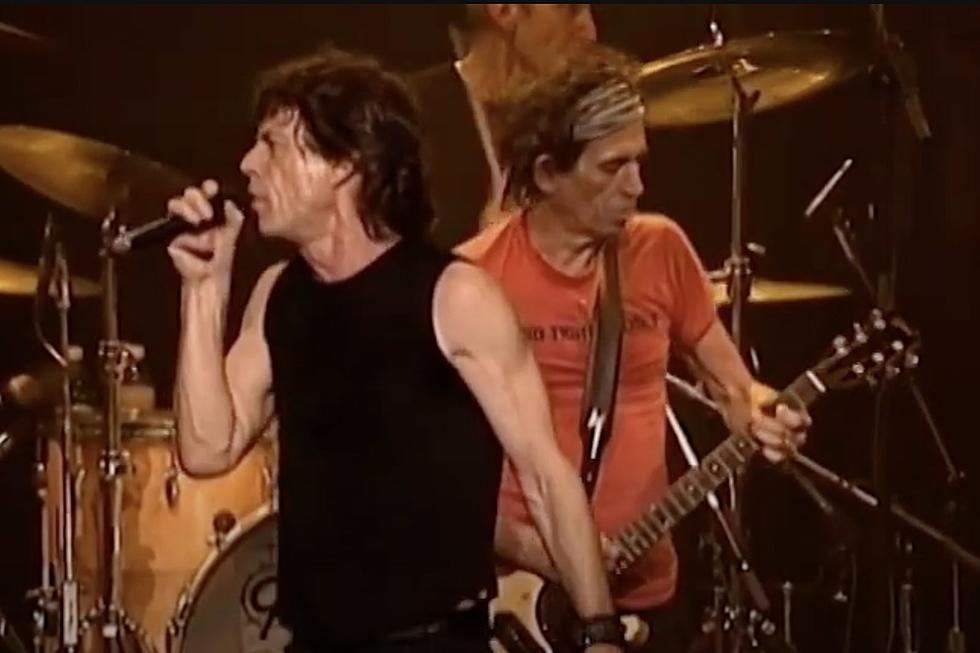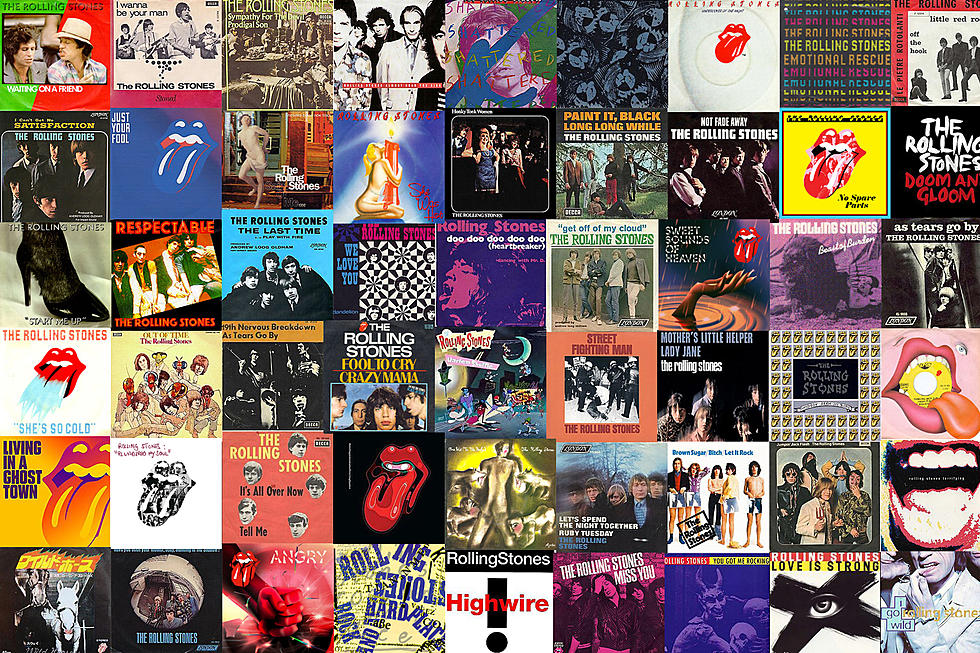
The Pre-Faces, Pre-Rolling Stones History of Ron Wood
Like so many young men born in the '40s, Ron Wood was bitten by the rock and roll bug early on, and hooked forever. Though most know him as being in two classic bands - the Faces from 1969-75 and the Rolling Stones ever since -- Wood was a central figure in many great rock and roll groups in the '60s. If you haven't heard any of his earliest work, here's a handy guide for you.
The Birds
1964-66Influenced by American R&B, and inspired by the music happening around them by the likes of the Beatles and Rolling Stones, the Birds formed in that pivotal year of 1964. The band looked the part, all mod fashion, but with even longer hair than the majority of other bands at the time.
They signed to Decca Records, and released their debut single. 'You're On My Mind' is a jagged guitar-driven rocker penned by Wood and more in line with the raunchy R&B sounds of the Pretty Things and the Kinks than anything else. Inspiring and exciting a record as it was, it failed to set the world alight. For the b-side, they tackle Bo Diddley's 'You Don't Love Me.' They demolish the song in supreme, raw fashion, somehow managing to come toe-to-toe with the Pretty Things, probably the nastiest band on the scene at the time.
Two more singles for Decca followed with the Spring '65 release of a cover of the Eddie Holland Motown classic 'Leaving Here,' which would be a Mod staple for many bands, including the Who, to cover. Years later, Motorhead would cover the song on their debut single, taking their inspiration from the Birds rendition. The b-side, 'Next In Line,' was another Wood composition and another slice of brash rhythm and blues.
Their final Decca single (Fall 1965) ranks as possibly their finest moment. A twin-sided killer, the band tackle the Marvin Gaye gem, 'No Good Without You Baby,' turning into a slashing, raunchy Mod stomper. The flipside, 'How Can It Be?,' written by Wood, is another raunchy R&B-based rocker with some brash lead breaks by Wood.
The band made a cameo appearance in the 1966 horror film, 'The Deadly Bees, but were soon dropped by Decca. they signed to Reaction (home of the Who and Cream) for one final single in late-1966. By the time of its release, Wood and bassist Kim Gardner had flown the coop. 'Say Those Magic Words' was another raver in the style that would, years later, become known as "freakbeat." Its flip was yet another from the pen of Woody, called 'Daddy Daddy,' which carried on the jagged guitar route, throwing in some heavier fuzz action for good measure.
The Creation
1966One of the most notorious of all the Mod bands, the Creation were a pop art explosion set to the sounds of technicolor R&B inspired pop/rock. They out Who'd the Who, and guitarist Eddie Phillips was attacking his guitar with a violin bow years before Jimmy Page used that little trick. They released an incredible stash of singles throughout 1966 and '68 - the most famous of which today is the garage classic 'Making Time.' Wood joined their ranks for a few short months, doing a tour and recording the single 'For All that I Am' b/w 'Uncle Bert.'
Santa Barbara Machine Head
1967A supergroup of sorts, Santa Barbara Machine Head came and went in the blink of an eye. Formed by Wood along with another former Bird, bassist Kim Gardner, the band also included keyboardist Jon Lord (just before joining Deep Purple) and John Alder, better known as Twink, ex-drummer for the Fairies who would go on to join Tomorrow, the Pretty Things, and later, the Pink Fairies (no relation to his early combo). Santa Barbara Machine Head signed to the up and coming Immediate label, home to the Small Faces, and recorded only a few tracks, which were featured on the 1968 'Blues Anytime' compilation. Tracks like 'Rubber Monkey' and 'Porcupine Juice' showed off their hard edged, all instrumental blues drenched sound seemed perfect for the times, but the band fell apart before they even got going.
The Jeff Beck Group
1967-69After leaving the Yardbirds, guitarist Jeff Beck struck out on his own, recording a pair of more pop-oriented singles in 1967. 'Hi Ho Silver Lining' and 'Tallyman' both charted respectably in the U.K., but the blues were where Beck wanted to be. Joining Beck in the Jeff Beck Group were drummer Micky Waller, Rod Stewart and Wood, who moved to bass.
The band recorded two seminal, classic heavy blues rock and roll albums 'Truth,' released in the summer of 1968, was everything Led Zeppelin would become known for a good six months prior to the release of the debut. Loud, yet thoughtful guitars, pumping bass and thundering drums, with one of rock and roll's finest singers at the helm.
'Beck-Ola,' issued in June 1969, carried on with the formula to great heights. The band were invited to play Woodstock, but Beck declined, partly due to turmoil within the group. Both Wood and Stewart were gone by the time the festival took place.
Quiet Melon
1969Quiet Melon barely existed. Wood, his brother Art (of another classic Mod R&B band, the Artwoods) and old pal Kim Gardner fell apart as fast as they formed. They recorded a few tracks at Phillips Studios in London in May 1969 that also featured Stewart. The tracks would remain unreleased until the mid-'90s.
Soon, a brighter future lay ahead for Ronnie. Steve Marriott quit the Small Faces to form Humble Pie. Needing a guitarist and singer, the remaining three members grabbed Wood and Stewart, and became the Faces.
More From Ultimate Classic Rock









